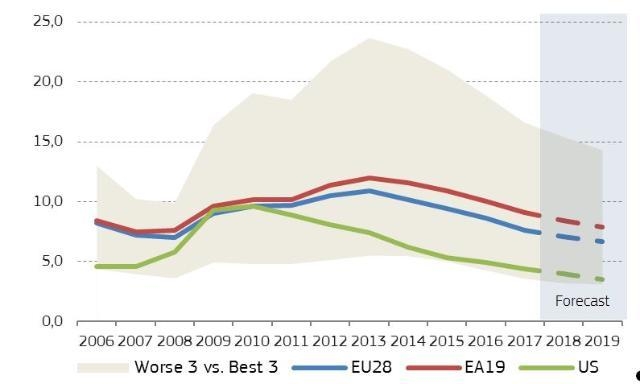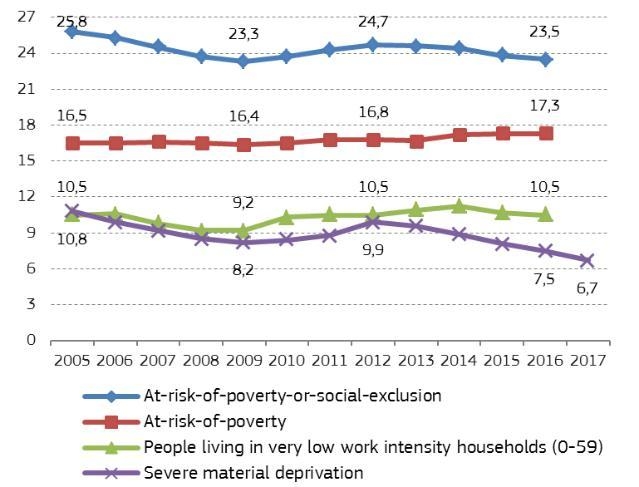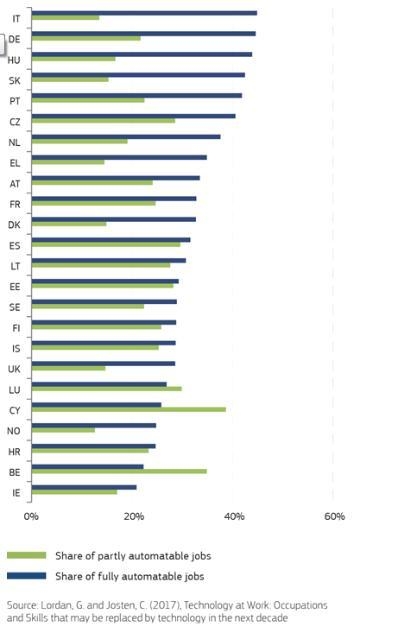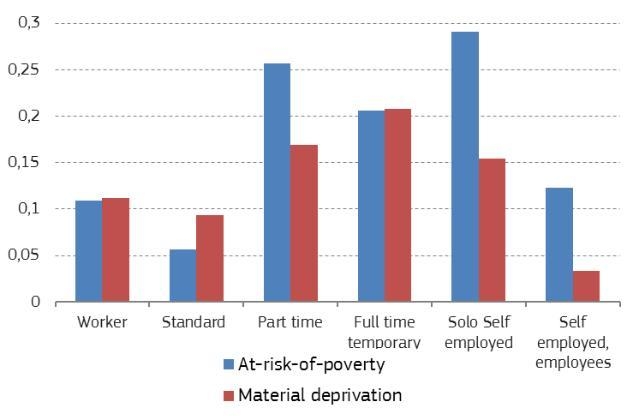(Susceptible de modifications en cours de semaine)
Déplacements et visites
Lundi 16 juillet 2018
EU-China Summit
Informal meeting of competitiveness ministers (Internal market and industry), in Vienna, Austria
Agriculture and Fisheries Council
Foreign Affairs Council
16-17/07 EU and the Community of Latin American and Caribbean States (EU-CELAC) Ministerial meeting
President Jean-Claude Juncker in Beijing, China: participates in the EU-China Summit with Mr Donald Tusk, President of the European Council, and Mr Li Keqiang, Premier of the State Council of the People’s Republic of China, and accompanied by Mr Jyrki Katainen, Ms Cecilia Malmström and Ms Violeta Bulc; participates in the EU-China Business Summit; participates in a working lunch hosted by Mr Li Keqiang, Premier of the State Council of the People’s Republic of China; meets Mr Xi Jinping, President of the People’s Republic of China, together with Mr Donald Tusk, President of the European Council; and participates in a working dinner hosted by Mr Xi Jinping, President of the People’s Republic of China.
Mr Frans Timmermans in The Haag, the Netherlands: meets Mr Mark Rutte, Prime Minister of the Netherlands; and Mr Arno Visser, President of the Court of Audit of the Netherlands.
Ms Federica Mogherini co-chairs the EU and the Community of Latin American and Caribbean States (EU-CELAC) Ministerial meeting, in Brussels.
Mr Jyrki Katainen in Beijing, China: meets with Mr Liu He, Chinese Vice Premier of the People’s Republic of China.
Mr Neven Mimica in New York, the United States: participates in the ministerial meeting of the 2018 High-Level Political Forum – co-hosts the High-Level Luncheon on “Accelerating SDG7 Achievement in support of 2030 Agenda for Sustainable Development” together with the United Nations Department of Economic and Social Affairs (DESA); co-hosts the EU side-event “A global circular economy for an inclusive and sustainable future: People and Planet in Partnership (for Prosperity and Peace)” together with Mr Karmenu Vella, and Ms Stientje van Veldhoven, Minister for the Environment of the Netherlands; and meets Mr Alpha Conde, President of Guinea.
Mr Miguel Arias Cañete in Madrid, Spain: meets Ms Teresa Ribera, Minister for Ecologic Transition of Spain.
Mr Karmenu Vella in New York, USA (until 17/07): participates in the United Nations High-Level Political Forum (UN HLPF) on Sustainable Development; meets Mr Sergio Bergman, Minister for Environment and Sustainable Development of Argentina. He also participates in the EU side event “Global circular economy for inclusive and sustainable future”; in the high-level dinner “Innovations and Solutions for Safeguarding Life on Earth”, organised by UN Biodiversity Convention, UN Environment, UN Development Programme, and the Food and Agriculture Organization (FAO).
Mr Vytenis Andriukaitis receives Mr Jan Krzysztof Ardanowski, Minister for Agriculture and Rural Development of Poland.
Mr Vytenis Andriukaitis receives Mr Petre Daea, Minister for Agriculture and Rural Development of Romania.
Mr Vytenis Andriukaitis meets Mr Gian Marco Centinaio, Minister for Agriculture of Italy, in Brussels.
Ms Elżbieta Bieńkowska in Tyrol, Austria: meets with industry representatives and local authorities and takes part in a dinner-debate with local Business leaders in Innsbruck.
Mr Tibor Navracsics receives representatives from World Footballers’ Association (FIFPro).
Ms Corina Creţu in Beijing, China (until 18/07): participates in a High-Level Meeting with Mr Lin Nianxiu, Vice-Chairman of the National Development and Reform Commission (NDRC) of the People’ Republic of China; as well as in the Signing Ceremony of International Urban Cooperation (IUC) city-to-city joint declarations.
Ms Mariya Gabriel in Sofia, Bulgaria: meets participants in the Traineeship Program of the Council of Women in Business in Bulgaria.
Mr Julian King delivers a speech at the Austria’s EU Council presidency Cyber Security Conference on “Finance 5.0 – a challenge for cyber security”; and attends a lunch organised by the National Bank of Belgium on the occasion of the conference, in Brussels.
Mardi 17 juillet 2018
EU-Japan Summit
EU and the Community of Latin American and Caribbean States (EU-CELAC) Ministerial meeting
Informal meeting of competitiveness ministers (Research), in Vienna, Austria
President Jean-Claude Juncker in Tokyo, Japan: participates in the EU-Japan Summit with Mr Donald Tusk, President of the European Council, and Mr Shinzō Abe, Prime Minister of Japan.
Mr Frans Timmermans receives Mr Thomas Leysen, Chairman of KBC Group.
Ms Federica Mogherini co-chairs the EU and the Community of Latin American and Caribbean States (EU-CELAC) Ministerial meeting, in Brussels.
Ms Federica Mogherini co-chairs the Somalia Partnership Forum, in Brussels.
Mr Andrus Ansip receives Mr Francisco Polo, Secretary of State of Information Society and Digital Agenda of Spain.
Mr Jyrki Katainen in Tokyo, Japan: attends the EU-Japan Summit.
Mr Maroš Šefčovič in Berlin, Germany: chairs the Trilateral Gas Talks between Russia and Ukraine.
Mr Johannes Hahn in the former Yugoslav Republic of Macedonia and Albania: on official visit.
Mr Neven Mimica in New York, the United States: participates in the ministerial meeting of the 2018 High-Level Political Forum.
Mr Miguel Arias Cañete in Madrid, Spain: meets Mr Antonio Erias, President of Mercado Ibérico del Gas (MIBGAS); and Mr Ignacio Larracoechea, President of PROMARCA.
Mr Vytenis Andriukaitis receives representatives of Medicines for Europe.
Mr Vytenis Andriukaitis receives representatives of the European Trade Association representing the medical imaging, radiotherapy, health ICT and electromedical industries (COCIR).
Mr Karmenu Vella in New York, the USA: participates in the United Nations High-Level Political Forum (UN HLPF) on Sustainable Development; meets Mr Thomas Remengesau, President of Palau. He also participates in the Ministerial breakfast “Achieving SDG12 with the One Planet Network”, organised by Germany and UN Environment/10YFP Secretariat; as well as in the launch of “High Ambition Alliance on Chemicals and Waste”, organised by Ms Karolina Skog, Minister for the Environment of Sweden.
M. Pierre Moscovici rencontre le Comité exécutif d’EuroCommerce, à Bruxelles.
Mr Christos Stylianides participates in the Somalia Partnership Forum, in Brussels.
Ms Elżbieta Bieńkowska in Tyrol, Austria: visits the Virtual Alpine Observatory in the Zigspitze Summit; and meets Mr Bernhard Schretter, CEO of the Planseewerke.
Ms Mariya Gabriel receives Mr Francisco Polo, Secretary of State of Information Society and Digital Agenda of Spain.
Ms Mariya Gabriel receives representatives from the International Federation of Reproduction Rights Organisations (IFFRO).
Ms Mariya Gabriel receives Ms Louise Mushikiwabo, Minister for Foreign Affairs of Rwanda.
Mr Julian King in Nicosia, Cyprus: meets Mr Ionas Nicolaou, Minister for Justice and Public Order of Cyprus; Mr Yiorgos Lillikas, Chairman of the Parliamentary Standing Committee on Foreign and European Affairs; Mr Demetris Demetriou, Deputy Chairman of Parliamentary Standing Committee on Legal Affairs; and Mr Zacharias Chrysostomou, Chief of Cyprus Police of Cyprus; and makes a visit to the Cybercrime Centre.
Mercredi 18 juillet 2018
College meeting
President Jean-Claude Juncker receives Mr Werner Hoyer, President of the European Investment Bank (EIB), and Mr Wilhelm Molterer, Managing-Director of the European Fund for Strategic Investments.
Mr Frans Timmermans receives Mr Tony Blair, former Prime Minister of the United Kingdom, and founder of the Tony Blair Institute for Global Change.
Ms Federica Mogherini hosts a meeting in the framework of the EU-facilitated Dialogue with Mr Hashim Thaçi, President of Kosovo and Mr Aleksandar Vučić, President of Serbia.
Mr Jyrki Katainen in Pori, Finland (until 20/07): attends SuomiAreena public debate forum; participates in a Citizens’ Dialogue on European Defence; meets Mr Kai Mykkänen, Minister for the Interior of Finland; Mr Timo Ritakallio, President and Executive Chairman of OP Financial Group; Mr Seppo Parvi, Deputy CEO of Stora Enso, and Mr Timo Heikka, Vice-President for Stakeholder Relations Finland and EU Affairs of Stora Enso; and participates in working dinners with Mr Risto Siilasmaa, Chair of the Board of Directors of Nokia Corporation, and Finnish political leaders.
Ms Corina Creţu in Zhengzhou, China: meets Mr Huang Qiang, Executive Deputy Governor of Henan; delivers closing remarks at the EU-China Regional and Urban Cooperation Seminar. She also visits the EU-China Exhibition on Urbanisation-GIZ Booth as well as meets with local official representatives.
Mr Dimitris Avramopoulos receives Mr Werner Hoyer, President of the European Investment Bank (EIB); and Mr Wilhelm Molterer, Managing Director of the European Fund for Strategic Investments of European Investment Bank (EIB).
Mr Carlos Moedas receives Ms Martina Munch, Minister for Science, Research and Culture of Brandenburg.
M. Julian King reçoit M. Frédéric MacKain, Secrétaire Général de la préfecture des Alpes Maritimes chargé d’une mission pour l’académie du renseignement.
Jeudi 19 juillet 2018
19-20/07 Informal meeting of employment and social policy ministers, in Vienna, Austria
President Jean-Claude Juncker in Madrid, Spain (until 20/07): attends an audience with His Majesty King Felipe VI of Spain; together with the board of trustees and sponsors of the Carlos de Amberes Foundation, attends an audience with His Majesty King Felipe VI of Spain; and delivers a keynote speech on “New perspectives for the future of Europe” at the Carlos de Amberes Foundation.
Mr Valdis Dombrovskis receives Mr Mamuka Bakhtadze, Prime Minister of Georgia.
MsCecilia Malmström receive Mr Mamuka Bakhtadze, Prime Minister of Georgia.
Mr Miguel Arias Cañete receives Mr Zygimantas Vaiciunas, Minister for Energy of Lithuania.
Mr Karmenu Vella receives Ms Vivian Motzfeldt, Minister for Education, Culture, Church and Foreign Affairs of Greenland.
Mr Karmenu Vella receives Mr Jürgen Resch, Managing Director of Deutsche Umwelthilfe (DUH, Environmental Action Germany).
Ms Marianne Thyssen in Vienna, Austria (until 20/7): attends the Employment, Social Policy, Health and consumer Affairs (EPSCO) Council; meets Mr Heinz Faβmann, Federal Minister for Education, Science and Research of Austria. She also meets Mr Eityvidas Bingelis, Vice-Minister for Social Security and Labour of Lithuania.
M. Pierre Moscovici à Paris: est auditionné par la mission d’information de l’Assemblée nationale intitulée “L’avenir de la zone euro”; et par la mission parlementaire sur le cadre financier pluriannuel.
Ms Vĕra Jourová in Prague, the Czech Republic: meets Mr Dan Ťok, Minister for Transport, and Ms Libuše Šmuclerová, CEO and Chair of the Board of the Czech News Center, publisher.
Mr Tibor Navracsics in Veszprém, Hungary: delivers a speech at the twin-cities conference on ‘Education and Culture: driver of innovation in Central Europe’.
Mr Carlos Moedas in Lisbon, Portugal: attends the presentation of the book “Etica Apilicada: Novas tecnologias” and delivers a keynote speech at the dinner-debate organised by the think tank Portugal XXI.
Mr Julian King in London, the United Kingdom: meets Ms Chloe Smith, Minister for the Constitution; and attends a reception for the 20th anniversary of the Centre for European Reform.
Vendredi 20 juillet 2018
Informal meeting of employment and social policy ministers, in Vienna, Austria
General Affairs Council (Art. 50)
President Jean-Claude Juncker in Madrid, Spain: receives the “Marqués de Villalobar” Award granted jointly by the Chamber of Commerce of Belgium and Luxembourg in Spain and by the Spanish-Dutch Entrepreneurial Forum.
Mr Johannes Hahn receives Mr Mamuka Bakhtadze, Prime Minister of Georgia.
Mr Neven Mimica receives Ms Vivian Motzfeldt, Minister for Education, Culture, Church and Foreign Affairs of Greenland.
Ms Marianne Thyssen in Vienna, Austria: attends the Employment, Social Policy, Health and consumer Affairs (EPSCO) Council.
Ms Elżbieta Bieńkowska in Bohumin, the Czech Republic: takes part on the first Train ride from the Czech Republic to Poland, the first international open access passenger carrier on the Polish railways.
Mr Carlos Moedas in Lisbon, Portugal: delivers a keynote speech at the Fernando de Sousa Journalism 2018 Award ceremony and visits the Museum of Portuguese Decorative Arts and Workshops.
Samedi 21 juillet 2018
M. Pierre Moscovici à Buenos Aires, Argentine (jusqu’au 22 juillet): participe aux réunions G20 des ministres de finance et des chefs des banques centrales.
Prévisons du mois de juillet:
24/07 Economic and Financial Affairs Council (Budget)
Permanence DG COMM le WE du 14 juillet au 15 juillet 2018:
Anca PADURARU: +32 (0) 498 96 64 30
Permanence RAPID – GSM: +32 (0) 498 982 748
Service Audiovisuel, planning studio – tél. : +32 (0)2/295 21 23



